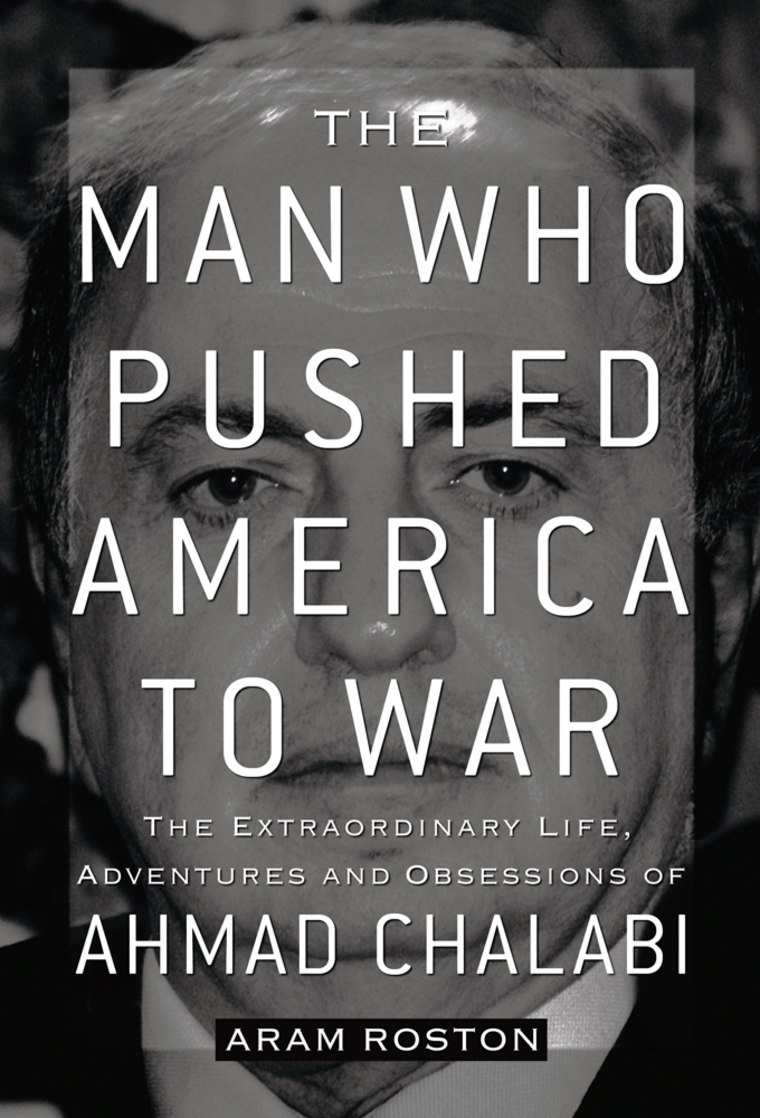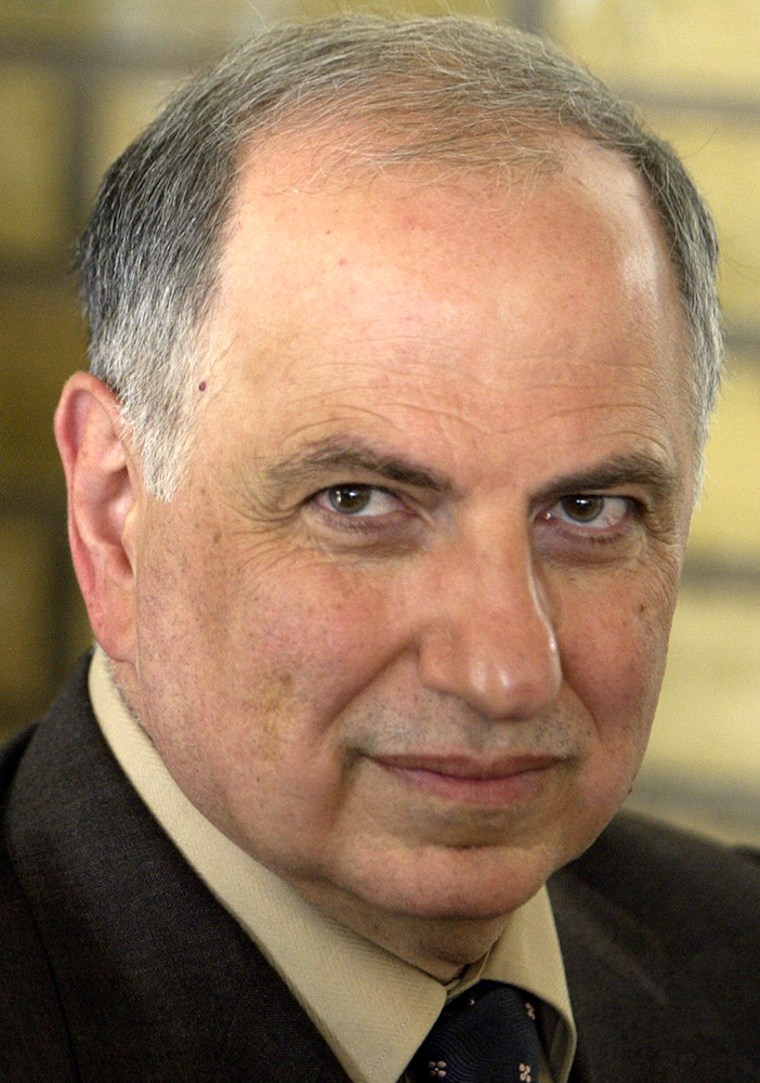His inner circle called him The Doctor, because of his Ph.D in mathematics. Some of his operatives called him Our Big Brother. The Central Intelligence Agency called him by a code name — which intelligence sources reveal as Pulsar One. Whatever you call him, Ahmad Abdul Hadi Chalabi, a shrewd Iraqi Arab from a family of Shiite bankers, literally changed the world. The United States, which he referred to so respectfully as a “strategic ally,” had sponsored him, flown him and his people to Iraq, even toppled Saddam Hussein for him, as he would boast. The Iraq War has many critics and some fierce defenders, but many insiders on both sides of the debate agree on this: without Chalabi there would have been no war.
He is a man of large appetites, with a flair for theatrics, and a brilliant and untiring mind. He had a single-minded hatred of the sadistic Saddam Hussein, a loyalty to his own Shiite heritage, and an inexplicable certitude in his own entitlement. Chalabi’s medium is people, and as an Iraqi exile his grazing area was America; his genius was his ability to make loyal friends among adventurous spirits. He epitomized “charismatic leadership.” Over dinners, lunches, and coffee, he spoke in grand and colorful language about the human right to freedom, about the delightful world to come in the Middle East, about the great things that could be done. As he talked, Chalabi was physically transformed. What strangers saw as a smug smirk curled on his fleshy lips disappeared, and was replaced by a wise yet merry smile. Whereas once he had a stiff back and clumsy walk, now he appeared to have a regal and noble bearing. Some of his closest advisers were Democrats. Some were liberals. Some were pro-Israel; others were anti-Zionists. It didn’t really matter once they met him. But in the end it was notoriously the recruitment of the American neoconservatives and the hawkish wing of the Republican Party that got him what he needed. They satisfied his needs, and he theirs.
He touched America in three ways. His first success could be called ideological: he was able to affirm for a generation of thinkers the urgent need to overthrow Saddam. Toppling Saddam, and ending his aggression and his feared weapons of mass destruction, became the keystone of transforming the Middle East. Chalabi was not the sole source of this vision, but he was the chief intellectual facilitator for a now well-known cadre of hard-liners whose influence was extraordinary in the early part of the new millennium. They included Richard Perle, Paul Wolfowitz, I. Lewis “Scooter” Libby, John Hannah, Michael Ledeen and Danielle Pletka. They dined with him and met him and conversed, and through well-placed op-eds and clever talking points and sound bites, their ideas bled into the mainstream.
Second, Chalabi fed intelligence and sources to journalists and the U.S. intelligence services. This was, for him, the easiest task. Much of the world already believed Saddam had WMDs. And Saddam was indeed a sadistic tyrant. Chalabi’s contribution was to give the allegations flesh and muscle and specificity. The tidbits he provided were often quickly discredited by intelligence officers, but they had tremendous impact on public opinion. His use of the press helped prepare the political battleground for war. The New York Times, CBS News’ “60 Minutes,” PBS’ “Frontline” and Vanity Fairbecame his chosen outlets. The splash from his stories was immense. Saddam, the intelligence services knew, had no ties to the attacks of 9/11, but as Chalabi’s friend Fouad Ajami wrote once to explain the war, “These distinctions did not matter; the connection had been made in American opinion.”

Third, Chalabi had political impact that was virtually unheard of for a foreigner. He used his personal magnetism, lobbying skills and tactical abilities to merge U.S. policy with his own ambitions. The U.S. Congress passed a law written largely to achieve his vision and to boost the fortunes of his political vehicle, the Iraqi National Congress. He had a battery of supporters on Capitol Hill. U.S. senators like Trent Lott, John McCain, Sam Brownback, Joe Lieberman, and Bob Kerrey became his champions. But even more important, he knew how to manipulate the key aides who work anonymously in the back rooms to make Capitol Hill run. He courted key Republicans like Trent Lott’s Randy Scheunemann and House international affairs staffer Steve Rademaker, as well as Senate Democratic aides like Chris Straub and Peter Galbraith.
As a younger man, Chalabi had presided over the wholesale collapse of his family’s business empire, a worldwide venture riddled with fraud insider dealing and disastrous investments. But he was able to bounce back after locating a rich vein of financing from the U.S. government. American taxpayers generously funded him and his Iraqi National Congress during his fifteen-year campaign against Saddam. Although he was not an American, and in fact distrusted the United States, he moved from one federal agency to another with the easy grace of a hummingbird drifting from flower to flower. First he was funded by the Central Intelligence Agency, then by the State Department, and finally by the Defense Department. When he called the United States a “strategic ally,” maybe it was a taunt as much as it was reality.
